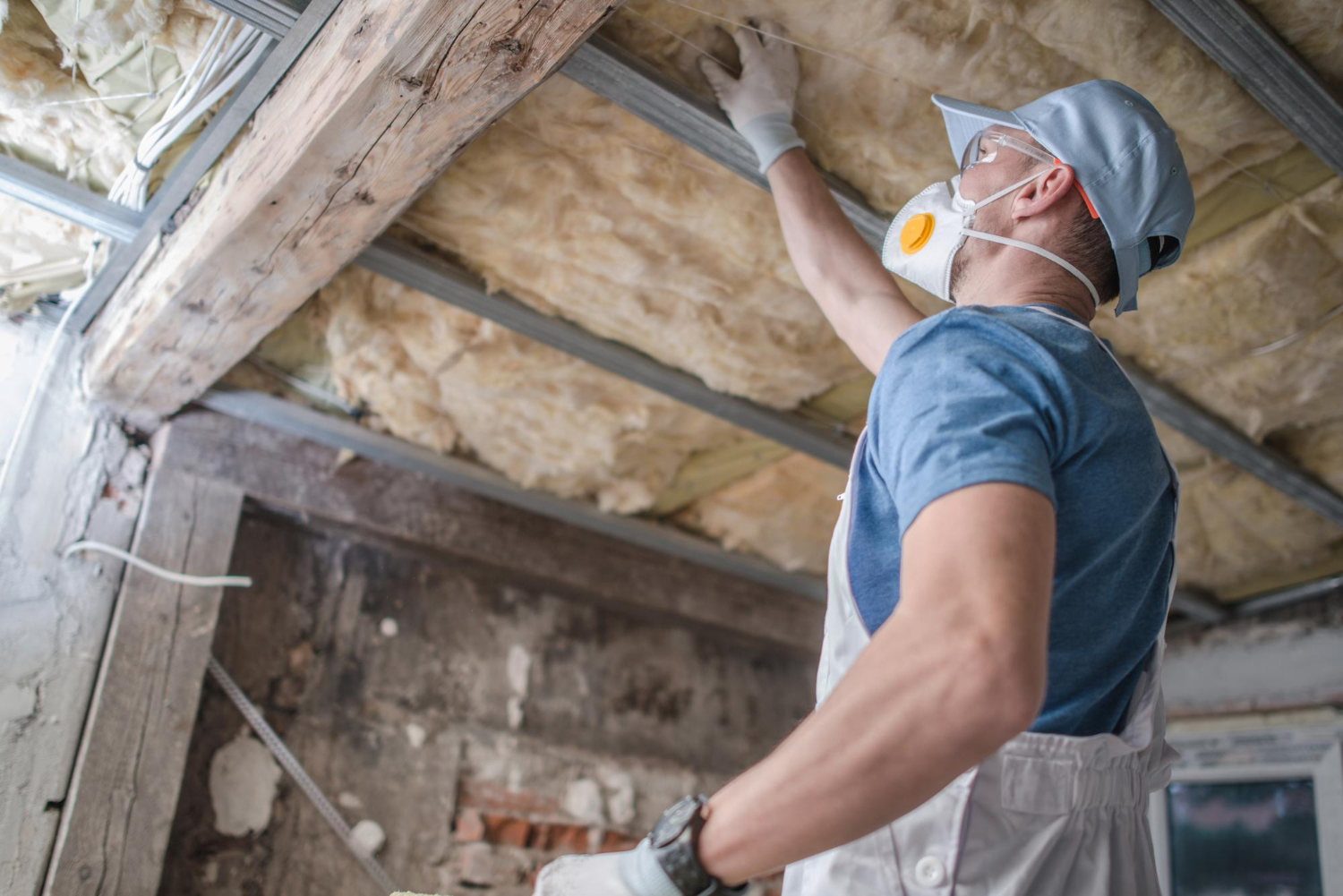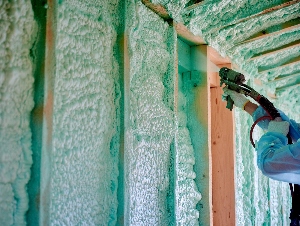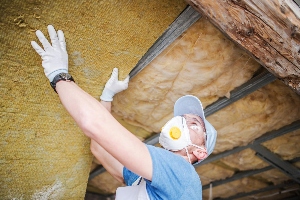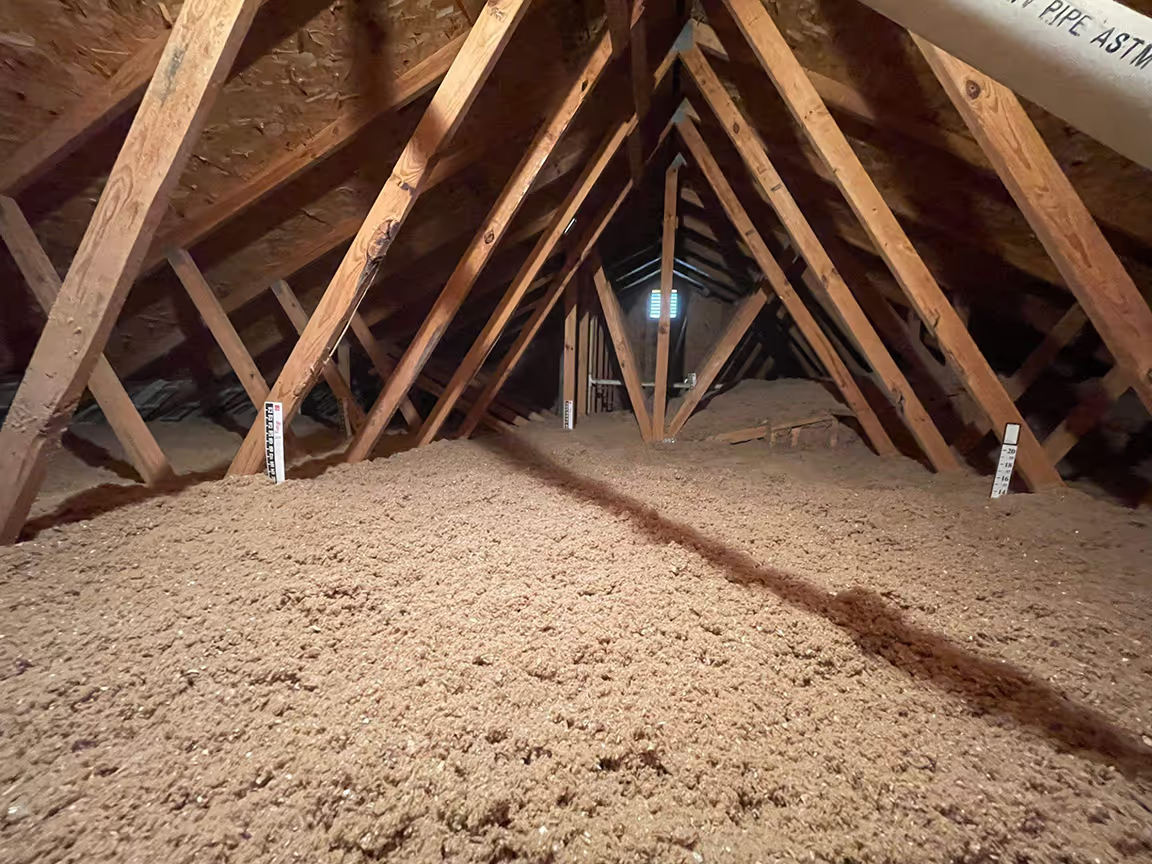A poorly insulated basement can waste hundreds of dollars in energy costs each year while creating uncomfortable living conditions throughout your home. Choosing the right basement insulation contractor requires checking their experience with basement-specific challenges like moisture control, proper R-value selection, and building code compliance.
Unlike other home improvement projects, basement insulation demands specialized knowledge that can make or break your investment. We've seen too many homeowners rush into hiring the first contractor they find, only to discover shoddy work that leads to mold problems or wasted energy.
The wrong choice doesn't just cost money upfront - it creates long-term issues that are expensive to fix later.Understanding what separates skilled basement insulation professionals from general contractors will help you make an informed decision.
In this article, you’ll learn how to choose the right basement insulation contractor and what makes a professional company worth the investment.
Here’s what you need to know:
- Why basement insulation isn't a DIY job
- What to expect from a top-tier basement insulation company
- Understanding basement insulation costs and value
- Comparing local basement insulation companies
- The Terra advantage for basement insulation
Keep reading to walk through the key factors to evaluate, from assessing company credentials to understanding fair pricing and recognizing quality workmanship that delivers lasting results.
Why basement insulation isn't a DIY job
Basement insulation requires specialized knowledge of moisture control and building code compliance that most homeowners lack. The risks of improper installation can lead to costly mold problems and code violations.
Moisture control and mold risk in basements
Basements face unique moisture challenges that make insulation installation risky for DIY projects. Water can enter through foundation walls, floors, and air leaks.
Vapor barrier placement is critical in basement insulation. Installing the barrier on the wrong side can trap moisture inside walls. This creates perfect conditions for mold growth.
We see many homeowners install insulation without proper moisture testing. Basements need humidity levels below 60% before insulation installation. Higher levels require dehumidification systems first.
Condensation points form where warm air meets cold surfaces. Professional contractors know how to identify these areas. They use special techniques to prevent moisture buildup.
Mold can start growing within 24-48 hours in damp insulation. Once mold spreads, removal costs thousands of dollars. Health risks include respiratory problems and allergic reactions.
Insulation code requirements most homeowners miss
Building codes for basement insulation vary by climate zone and local regulations. Most homeowners don't understand these requirements.
R-value requirements differ based on your location. Northern climates need higher R-values than southern areas. Using incorrect R-values fails inspections and wastes energy.
Fire safety codes require specific insulation materials in basements. Some foam insulations need fire-resistant coverings. Others can't be used near heating equipment.
Electrical considerations often get overlooked. Insulation must maintain proper clearances around wiring and outlets. We've seen DIY projects create fire hazards by covering electrical components.
Permit requirements apply to most basement insulation projects. Skipping permits can cause problems when selling your home. Insurance claims may be denied for unpermitted work.
When a professional contractor becomes essential
Complex basement layouts require professional assessment and installation techniques. Contractors have specialized tools and training for challenging situations.
Structural considerations affect insulation placement. Contractors know how to work around support beams, ductwork, and plumbing. They understand load-bearing requirements.
Professional contractors carry insurance for their work. This protects you from liability if problems occur. They also provide warranties on materials and installation.
Specialized equipment like spray foam machines requires training to operate safely. Improper use can create toxic fumes or uneven coverage. Contractors have protective gear and ventilation systems.
Time and efficiency matter in basement projects. Professional installers complete work in days instead of weeks. They avoid common mistakes that require expensive repairs later.
What to expect from a top-tier basement insulation company
A professional basement insulation company will conduct thorough evaluations of your space and offer appropriate material recommendations. We should expect clear communication about insurance coverage and warranty protection throughout the process.
How reputable contractors evaluate and quote your space
Professional contractors always start with a detailed inspection of your basement. They examine walls, floors, and ceilings for moisture issues, air leaks, and structural problems.
A quality contractor will perform an energy evaluation to identify heat loss areas. This helps them determine the best insulation strategy for your specific space.
During the inspection, they measure all surfaces that need insulation. They also check for existing insulation that might need removal or replacement.
Good contractors explain their findings in simple terms. They show you problem areas and explain why certain solutions work best for your basement.
The quote should include material costs, labor, and cleanup services. We should receive written estimates that break down all expenses clearly.
Material choices that work best below-grade
Basement insulation materials must handle moisture and temperature changes. Top contractors recommend specific products designed for below-grade conditions.
Spray foam insulation creates an air barrier and moisture seal. It works well on concrete walls and around pipes or electrical fixtures.
Rigid foam boards resist moisture and provide good thermal protection. Contractors often use these on basement walls with proper sealing techniques.
Fiberglass batts work in finished basements with proper vapor barriers. Professional installers know when this option makes sense for your project.
Quality contractors explain why they choose specific materials. They consider your basement's moisture levels, intended use, and local climate conditions.
Signs of a qualified and insured insulation team
Licensed contractors carry proper insurance coverage for property damage and worker injuries. We should always verify these credentials before hiring anyone.
Look for contractors who belong to professional trade organizations. These memberships show they stay current with industry standards and best practices.
Experienced teams bring specialized tools and safety equipment. They know how to work safely around electrical systems and plumbing in basements.
Quality contractors offer warranty coverage on their work. This typically includes material defects and installation problems for at least one year.
Professional teams clean up completely after finishing the job. They remove old materials, dispose of waste properly, and leave your basement ready for use.
Understanding basement insulation costs and value
Basement insulation projects typically range from basic DIY installations to comprehensive professional work, with costs varying significantly based on materials and labor. The upfront investment often pays for itself through reduced energy bills and increased home comfort.
The U.S. Department of Energy notes that basements can account for 10% to 30% of a home’s total heat loss. Properly insulating below-grade walls significantly improves comfort and leads to substantial energy savings.
What basement insulation typically costs (and why)
Professional basement insulation costs depend on several key factors. The size of your basement directly affects the total price since contractors charge per square foot.
Material costs make up a significant portion of the expense. Fiberglass batts cost less than spray foam, while rigid foam boards fall somewhere in between.
Labor expenses add $1.50 to $3.50 per square foot to your project. This covers installation, prep work, and cleanup.
Cost Factor
Impact on Price
Basement size
Direct multiplier
Insulation type
30-60% of total cost
Labor complexity
$1.50-$3.50 per sq ft
Moisture issues increase costs significantly. Basements with water problems need extra prep work before insulation installation.
Cost differences between contractors and insulation types
Different insulation materials create major price variations. Fiberglass batts offer the lowest upfront cost but require careful installation to avoid gaps.
Spray foam costs more initially but provides superior air sealing. This makes it worth the extra expense in many basements.
Rigid foam boards fall in the middle price range. They work well for basement walls and resist moisture better than fiberglass.
Contractor experience also affects pricing. Skilled installers charge more but deliver better results that last longer.
Some contractors specialize in specific insulation types. Spray foam experts typically charge premium rates but provide superior installation quality.
Energy savings that offset upfront investment
Basement insulation can reduce your energy bills by 20-30% annually. This translates to savings of up to $400 per year for many homeowners.
Heating costs drop significantly with proper basement insulation. Your furnace works less hard to maintain comfortable temperatures.
Cooling expenses also decrease since insulated basements stay cooler in summer months.
The return on investment typically occurs within 3-7 years. Well-insulated basements continue saving money for decades after installation. According to the U.S. Department of Energy, sealing air leaks and insulating accessible rim joists can cut heating and cooling costs by up to 20%, and reduce total energy use by about 10%.
Energy efficiency programs sometimes offer rebates or tax credits. These incentives can reduce your net project cost by hundreds of dollars.
Comparing local basement insulation companies
Professional basement insulation contractors offer specialized expertise that general contractors may lack. The right questions help identify qualified installers who protect both your investment and product warranties.
What sets professional installers apart from general contractors
Professional installers focus specifically on insulation systems. They understand moisture control, vapor barriers, and basement-specific challenges that general contractors might miss.
Training and Certification:
- Manufacturer-certified installation techniques
- Building science knowledge for basements
- Understanding of local building codes
Specialized companies use proper equipment for basement environments. They know how to handle humidity issues and foundation walls correctly.
General contractors may treat basement insulation as just another job. Professional installers understand that basements need different approaches than attics or walls.
Key Equipment Differences:
- Moisture meters for detecting problems
- Specialized cutting tools for tight spaces
- Proper ventilation equipment during installation
Questions to ask before hiring
We recommend asking specific questions to evaluate each contractor's expertise and reliability.
Essential Questions:
- How many basement insulation projects have you completed?
- What type of insulation do you recommend for our specific basement?
- Do you handle moisture issues before installation?
- Can you provide references from recent basement projects?
Ask about their insurance coverage and licensing. Request proof of both general liability and workers' compensation insurance.
Project-Specific Questions:
- What preparation work is needed before installation?
- How long will the project take?
- What cleanup is included in your service?
- Do you guarantee your work?
Get detailed written estimates from at least three contractors. Compare not just prices but also materials, labor, and warranty terms.
Why working with a specialized company protects your warranty
Manufacturer warranties often require professional installation by certified contractors. Using the wrong installer can void your product warranty completely.
Specialized companies maintain relationships with insulation manufacturers. They stay updated on installation requirements and warranty terms.
Warranty Protection Benefits:
- Proper installation techniques preserve product warranties
- Documentation of certified installation
- Access to manufacturer support if issues arise
Many specialized companies offer their own workmanship warranties. This covers installation problems separate from material defects.
If problems occur, manufacturers work directly with certified installers to resolve issues. This process is much harder with general contractors who lack specialized training.
Documentation Requirements:
- Proof of certified installer credentials
- Installation photos and records
- Compliance with manufacturer specifications
The Terra advantage for basement insulation
Terra brings specialized expertise and proven methods to basement insulation projects across Maryland, DC, and Northern Virginia. Our comprehensive approach combines thorough inspection with expert installation and transparent service that homeowners consistently rate highly.
Our process from inspection to installation
Our basement insulation process starts with a detailed inspection of your space. We examine moisture levels, existing insulation, and structural conditions to create a custom plan.
During the inspection, we check for air leaks around rim joists and foundation walls. We also look for signs of water damage or mold that could affect insulation performance.
Our installation process includes:
- Removing old or damaged insulation materials
- Sanitizing affected areas when needed
- Sealing air gaps and entry points
- Installing proper vapor barriers
- Adding appropriate insulation materials
We use different insulation types based on your basement's needs. This includes spray foam for rim joists and rigid foam boards for foundation walls.
Our team handles the complete installation from start to finish. We clean up all debris and ensure your basement meets local building codes.
Why homeowners trust Terra
Homeowners choose Terra because we focus on basement-specific challenges. We understand that basement insulation requires different approaches than other areas of the home.
Our transparent pricing means no surprise costs during your project. We provide detailed estimates that break down materials and labor costs clearly.
Key advantages include:
- Licensed and insured technicians
- Specialized basement insulation experience
- Energy bill reductions up to 30%
- Moisture control expertise
- Local knowledge of Maryland, DC, and Virginia building codes
We use proven methods that prevent common basement problems like condensation and mold growth. Our team knows which insulation materials work best in below-grade environments.
Conclusion
Finding the right basement insulation contractor takes time and research. We recommend getting quotes from at least three different contractors to compare prices and services.
The contractor you choose should have proper licensing and insurance. They need experience with basement insulation projects specifically. Ask to see examples of their previous work and contact past customers.
A good contractor will inspect your basement before giving you a quote. They should explain which insulation type works best for your space. Make sure they understand moisture control since basements have unique challenges.
Get everything in writing before work begins. The contract should list materials, timeline, and total cost. It should also specify the R-value you will receive.
Watch for red flags like door-to-door sales or pressure to sign immediately. Avoid contractors who ask for full payment upfront. Professional contractors typically ask for a small deposit with the balance due upon completion.
The right contractor will communicate clearly throughout the project. They should answer your questions and keep you updated on progress. Quality insulation work protects your investment and improves your home's energy efficiency for years to come.
Contact our basement insulation experts today for a detailed quote and professional installation that meets code and prevents moisture issues.






